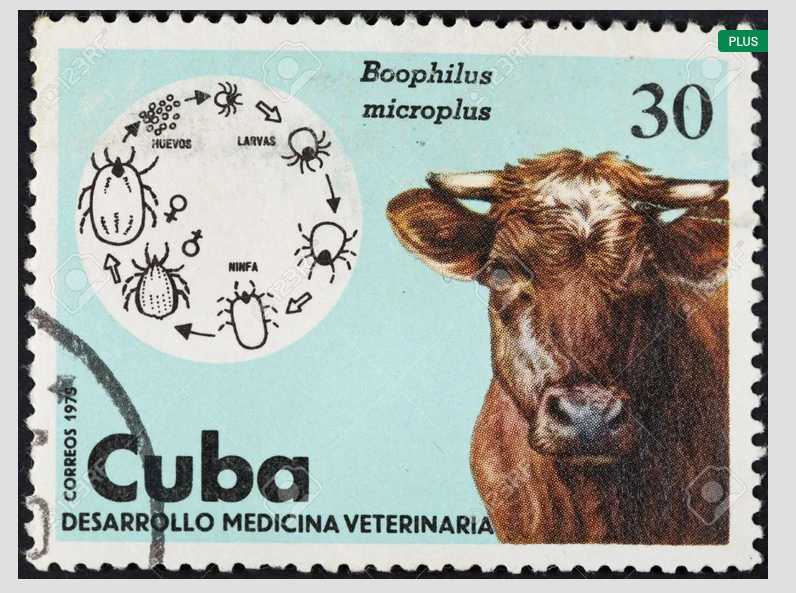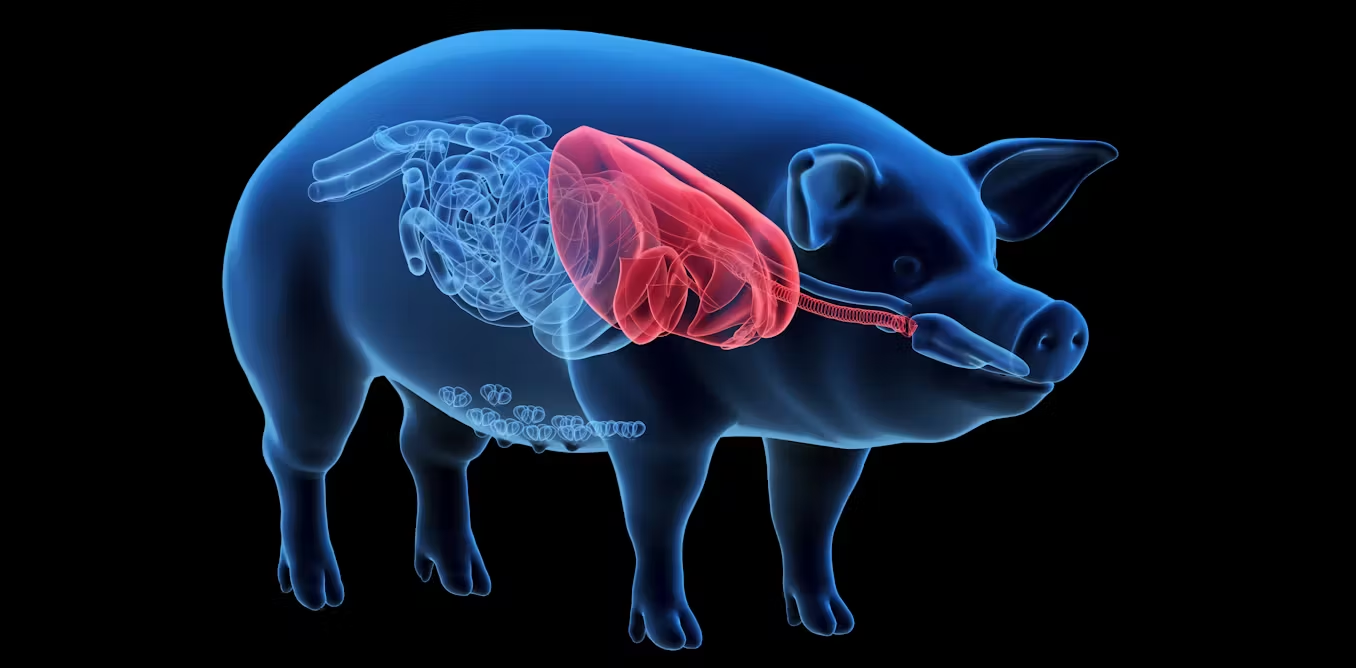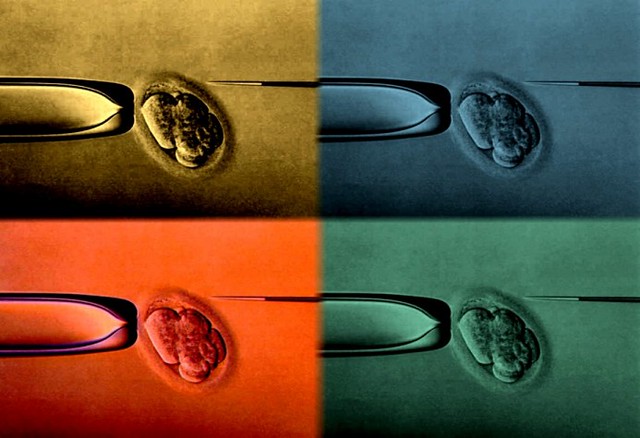News
Oxitec: after mosquitoes, GMO ticks

After mosquitoes, the spearhead of the Oxitec company, it is now the turn of agricultural parasites to be targeted. Oxitec now aims to reduce the population of a tick, Rhipicephalus microplus, which infests livestock just about everywhere in the world.
Oxitec has just received a new grant from the Bill and Melinda Gates Foundation of $4.8 million [1] to “develop a “Friendly™” solution for the invasive Asian blue tick, Rhipicephalus microplus”. « Friendly » actually means “genetically modified” [2]. This grant follows an initial grant of $1.5 million in 2021 [3]. It was used to fund a feasibility project to determine whether the Oxitec technology previously used on mosquitoes and other insects could be used to combat this tick. This is the first time Oxitec has attempted to apply its patented technology to a mite (class of arachnid).
For this new project, Oxitec is working with Clinglobal [4], a provider of animal health services, and with the UK’s Roslin Institute, which will provide the company with its “Large Animal Research and Imaging Centre” [5]. Forging upstream partnerships is one of Oxitec’s new strategies. In Brazil, the company is working with Fundação MT, a Brazilian agricultural company, to distribute its transgenic Spodoptera frugiperda [6].
Ticks are parasites that feed on the blood of livestock. This is an economic problem, but the ticks also transmit a number of diseases, including babesiosis. It would appear that this arachnid causes losses worth billions of dollars every year. In recent years, this tick, which originated in Asia, has spread throughout the world, mainly as a result of increased livestock movements [7]. Oxitec, without giving a source, suggests that this tick costs 3.2 billion dollars a year in Brazil alone [8].
Ticks have also become resistant to most of the chemical pesticides currently in use. Oxitec claims that, in the absence of any control tools, the distribution of sterile male ticks will make it possible to limit, or even eliminate, the population of this parasite. Oxitec sells its strategy as a biological alternative to pesticides. However, as we have already noted, its strategy is always deployed in conjunction with pesticide spraying, particularly during mosquito releases in Brazil [9].
Justine Morales, from the University of Liège (Belgium), has been working on alternatives to pesticides for managing this tick in New Caledonia. She sums up the situation as follows: “These methods often require farmers to have perfect knowledge of the parasite’s cycle, and sometimes even to change their breeding habits, which have been established over several decades. There are therefore interesting strategies that can be effective in combating Rhipicephalus microplus, but they are sometimes difficult to implement” [10]. Among the solutions that the researcher explores and analyses, one seems promising and environmentally friendly, but requires a new way of organising: she maintains that “pasture management enables intelligent control of tick infestation in cattle”. A Mexican team showed that resting a meadow for 45 days significantly reduced the presence of ticks on calves [11]. This opinion is not universally shared. An article published in 2020, based on a field experiment carried out in Brazil [12], concluded that “rotational grazing is not an effective means of controlling R. microplus”. In the end, few studies have focused on this technique.
The Bill and Melinda Gates Foundation is one of Oxitec’s main backers. They recently provided 18 million dollars for experimental releases of Anopheles mosquitoes in Djibouti [13].
[1] Gates Foundation, grant: « Pre-Development – Self-Limiting R. microplus for sustainable tick control », April 2023.
[2] Oxitec, « Oxitec Launches New Technology Program to Develop a Friendly™ Solution for the World’s Most Damaging Cattle Tick », 24 May 2023.
[3] Gates Foundation, grant : « Feasibility of a Self-Limiting R microplus for Sustainable Tick Control », March 2021.
[4] Clinglobal has received grants from the Bill and Melinda Gates Foundation on six occasions (from 2016 to 2022) totalling around $17 million. See the list here: https://www.gatesfoundation.org/about/committed-grants?q=Clinglobal
These include a $1.3 million grant received in 2022 to evaluate a vaccine against this tick in Africa.
Gates Foundation, grant: “Bm86 Immunomodulator: field and laboratory evaluation in Africa”, September 2022.
[5] The University of Edinburgh, « Large Animal Research and Imaging Facility », 19 June 2023.
[6] , « Brésil : des insectes OGM au secours du maïs Bt », Inf’OGM, 23 May 2023.
[7] For the record, the tick was imported into New Caledonia via the American army, which imported a large number of horses carrying the parasite. The quarantine measures in place beforehand were suspended during the 2nd World War (Bennett J.A, 2004 and Verges, 1944).
[8] Oxitec, « Oxitec Launches New Technology Program to Develop a Friendly™ Solution for the World’s Most Damaging Cattle Tick », 24 May 2023.
[9] , « Les insectes OGM et stériles : une efficacité peu probante », Inf’OGM, 25 January 2023.
[10] Morales, J., “La gestion de Rhipicephalus microplus dans les élevages de Nouvelle-Calédonie”, Université de Liège, Médecine vétérinaire, 2020.
[11] Cruz-González G, et al., « Rotational Grazing Modifies Rhipicephalus microplus Infestation in Cattle in the Humid Tropics », Animals, 2023.
[12] Nicaretta J.E. et al., « Evaluation of rotational grazing as a control strategy for Rhipicephalus microplus in a tropical region », Res Vet Sci., 2020.
[13] , « Moustique OGM : Oxitec s’implante à Djibouti », Inf’OGM, 9 March 2023.











